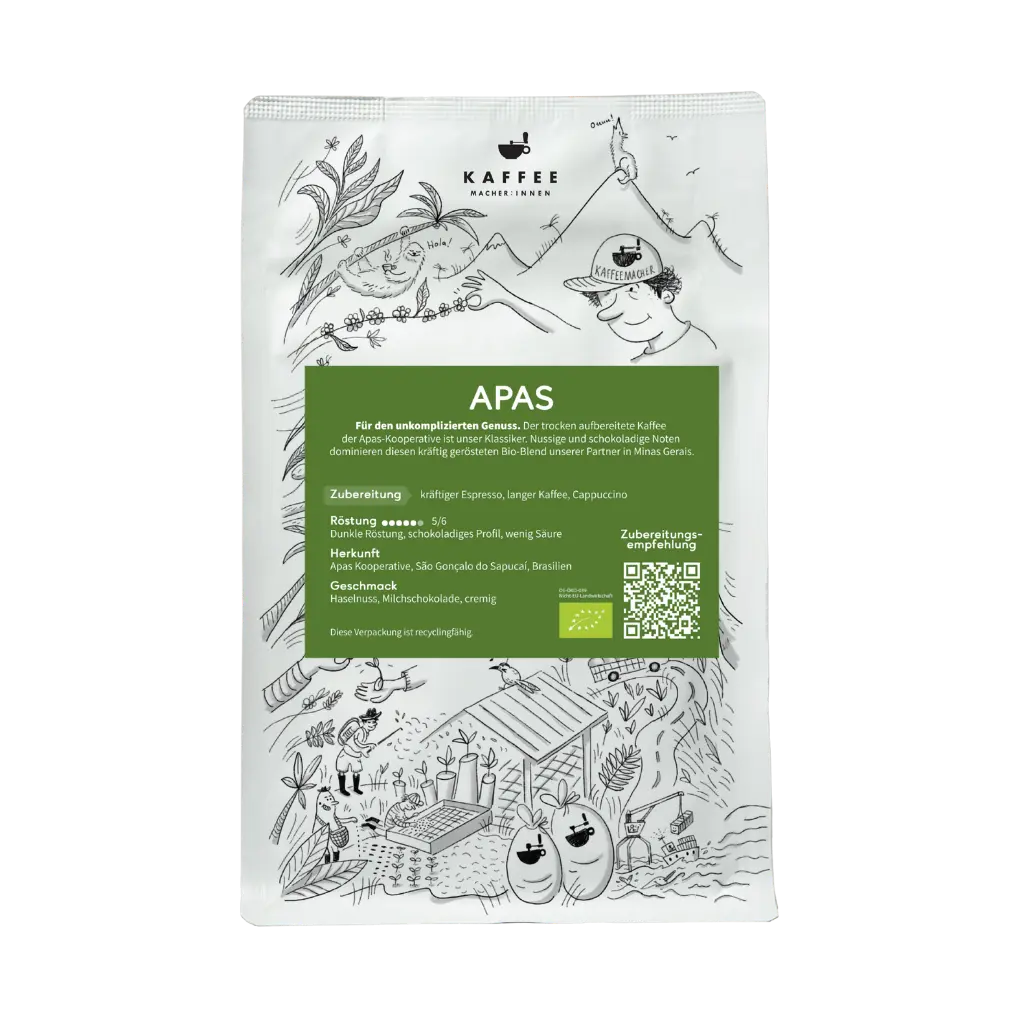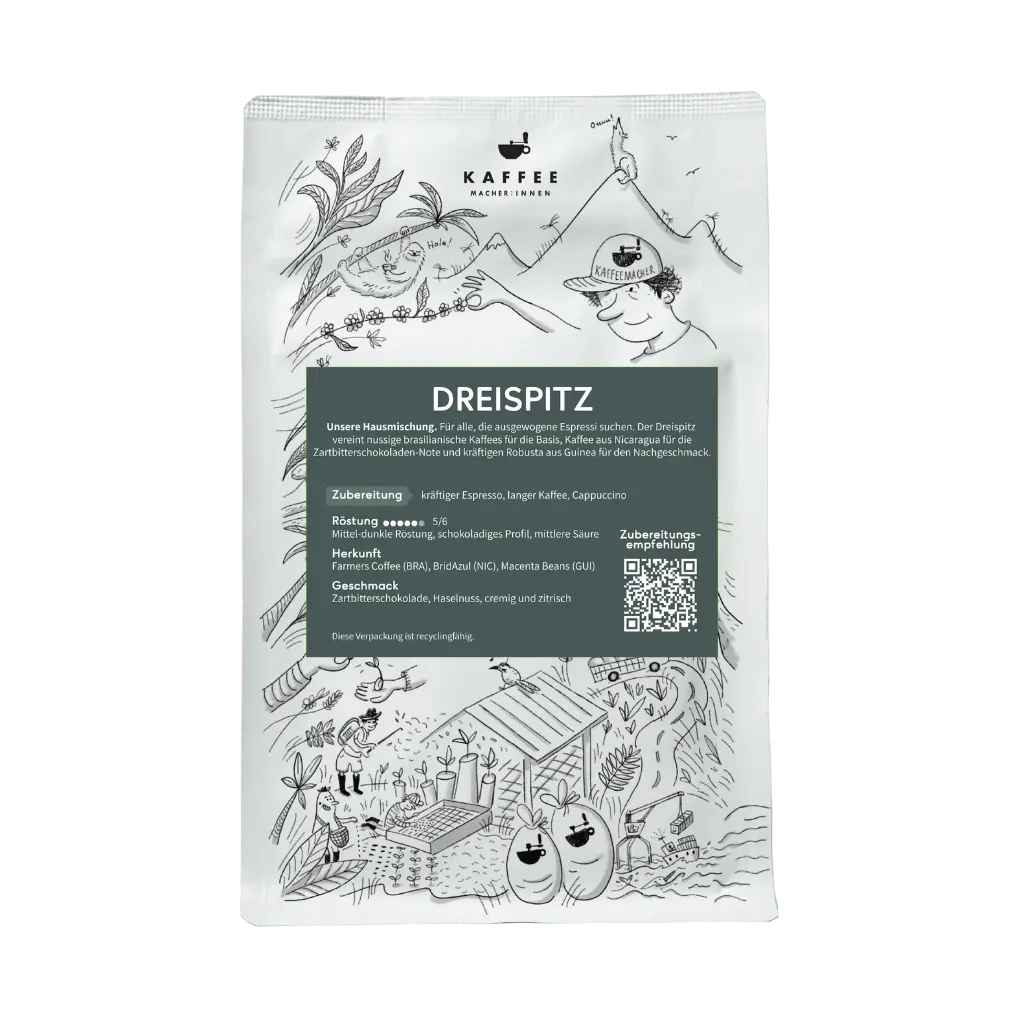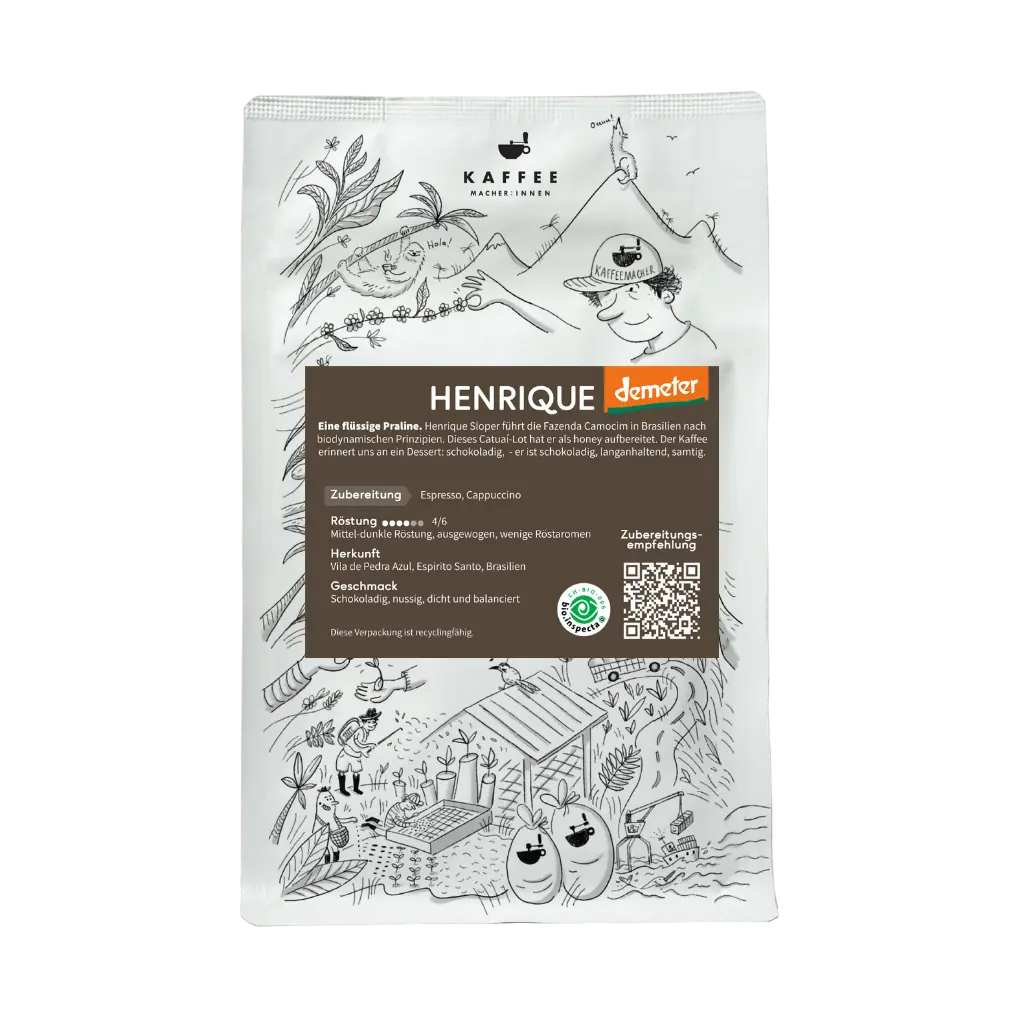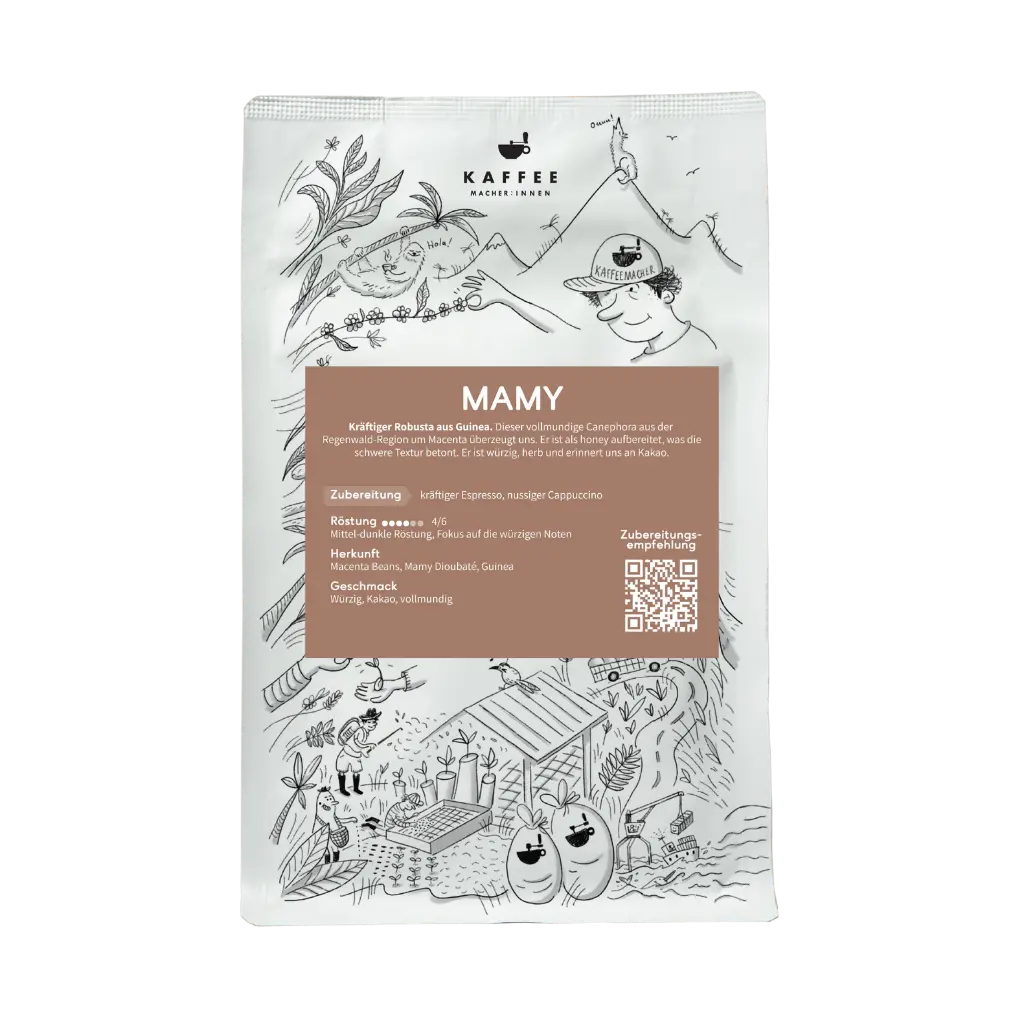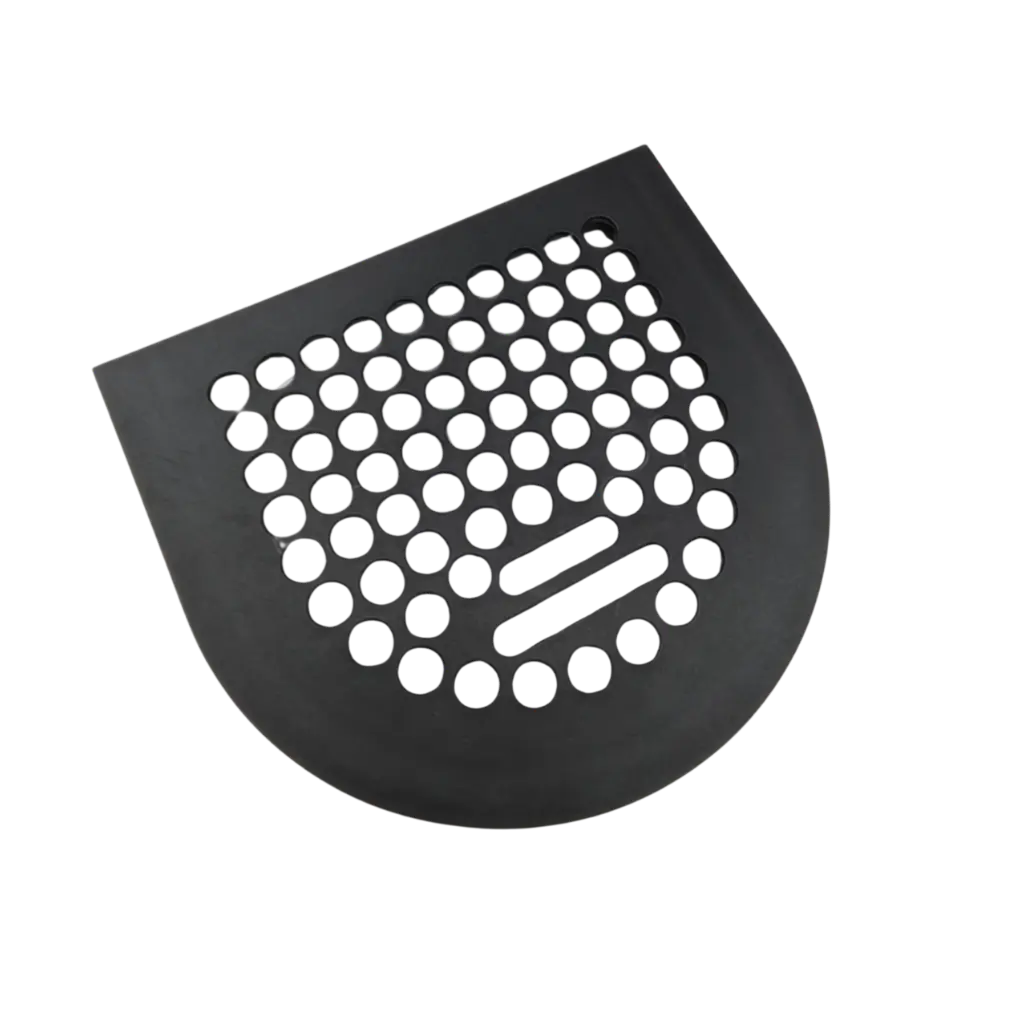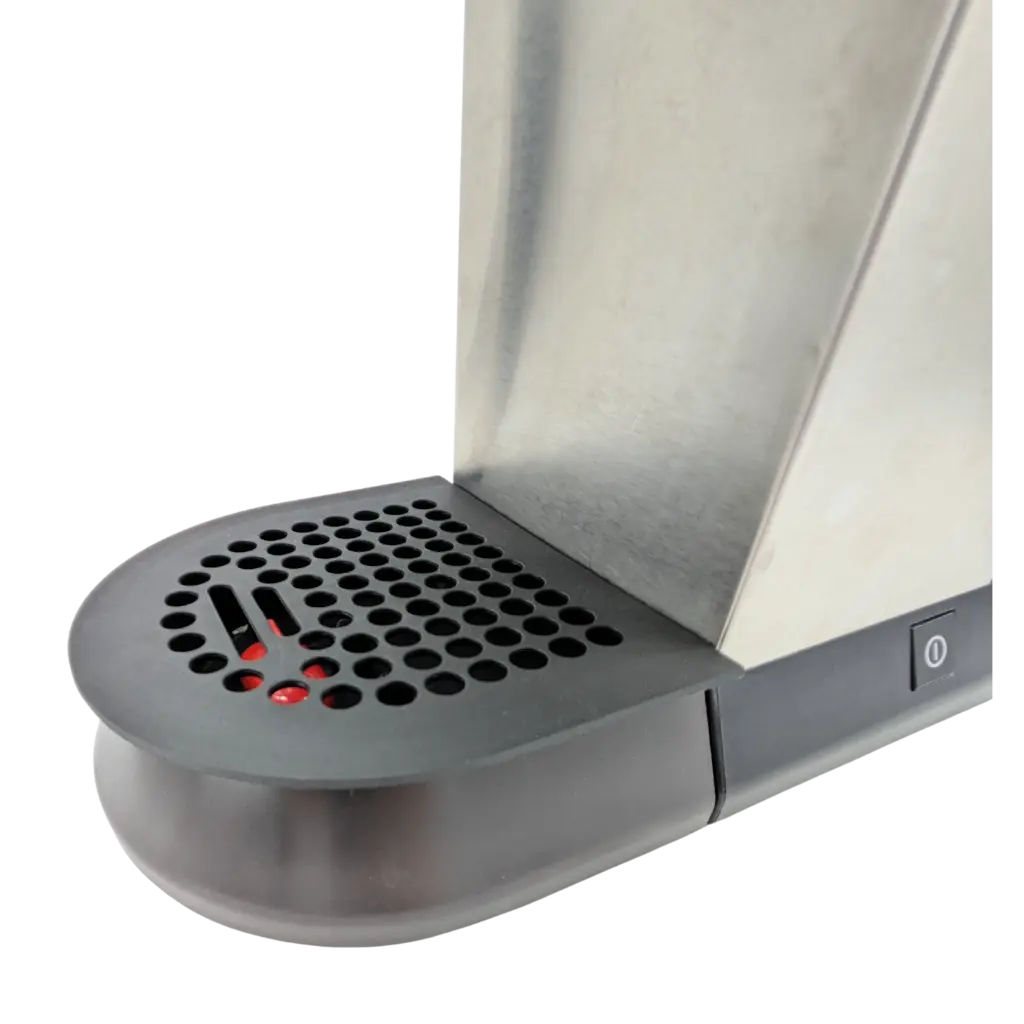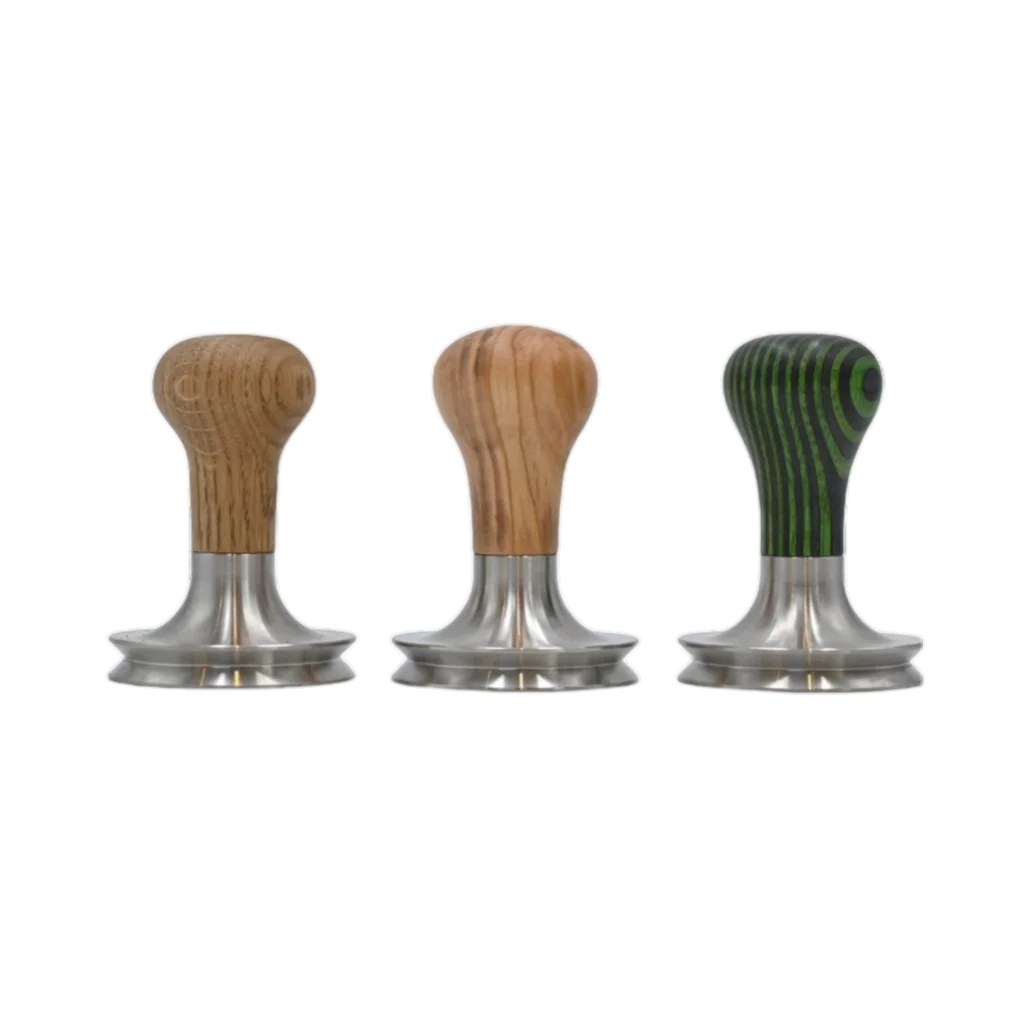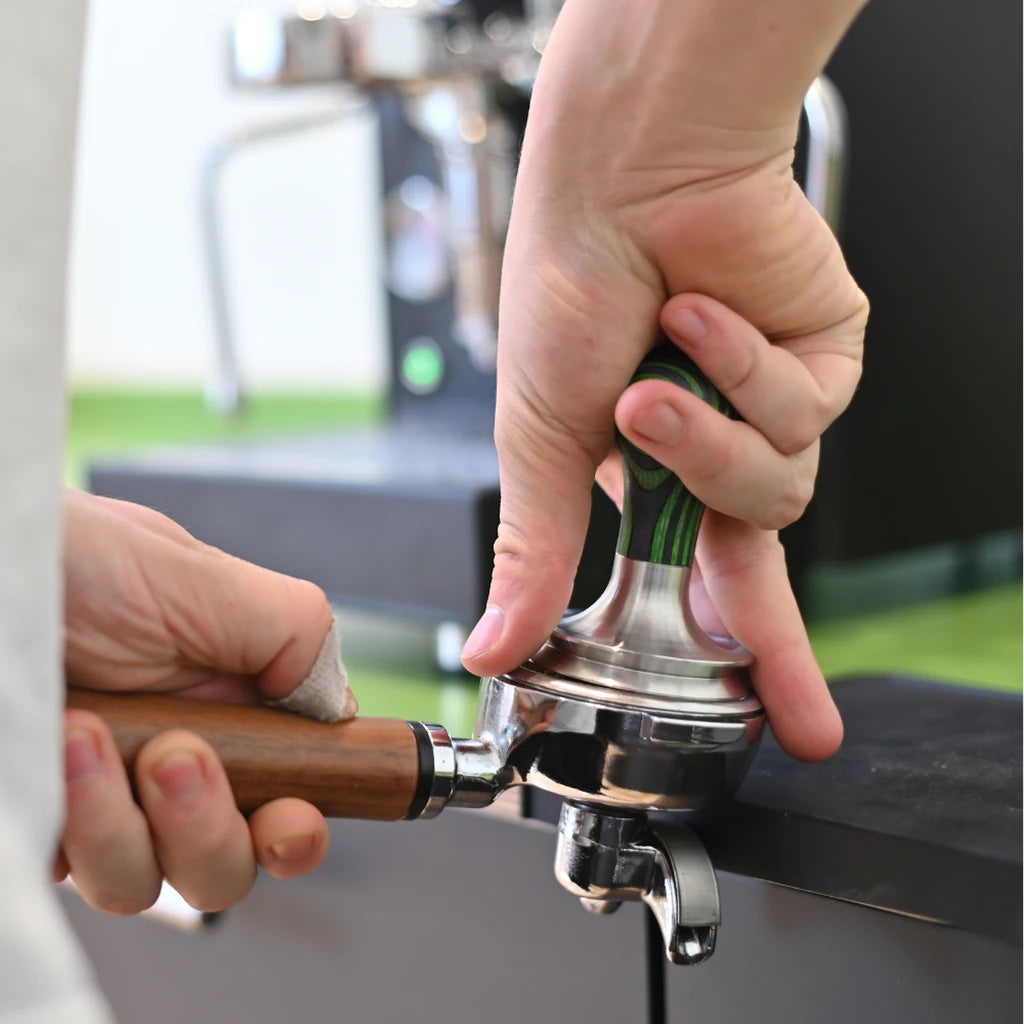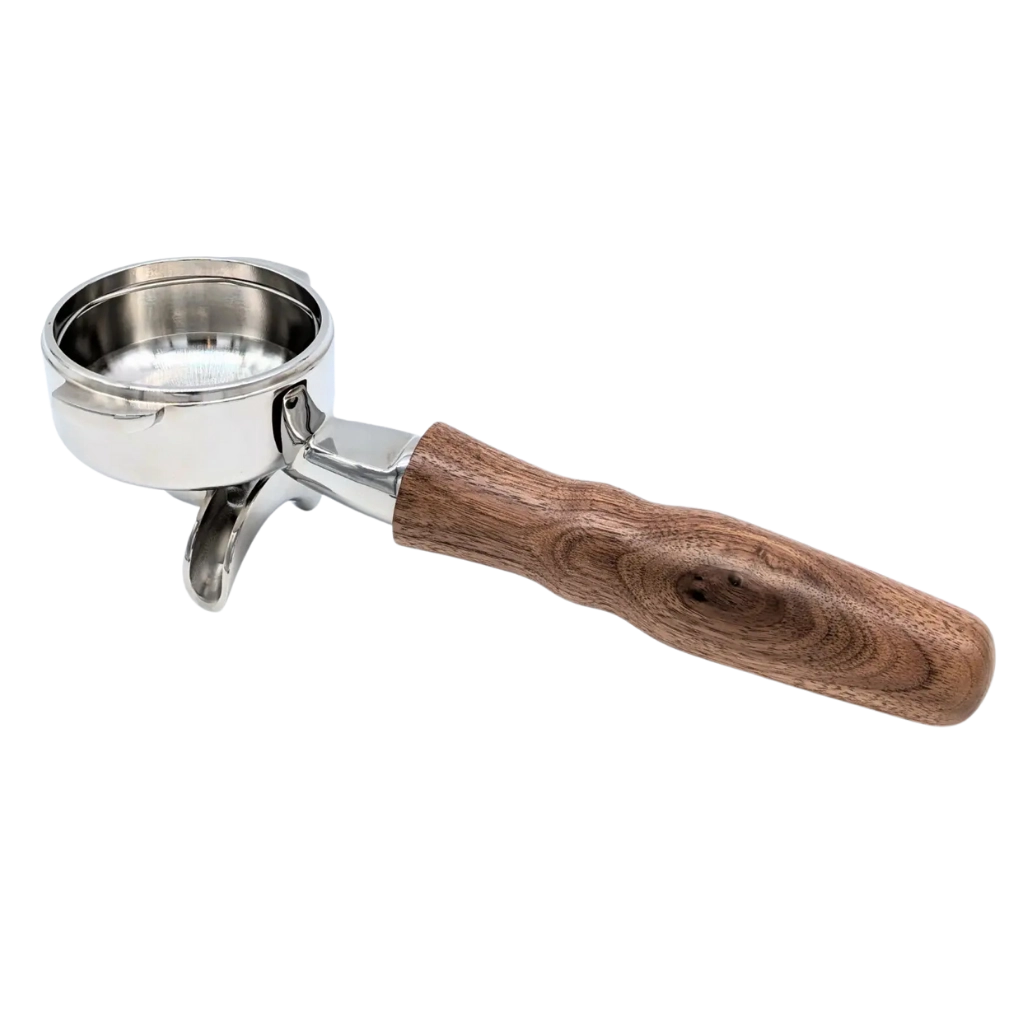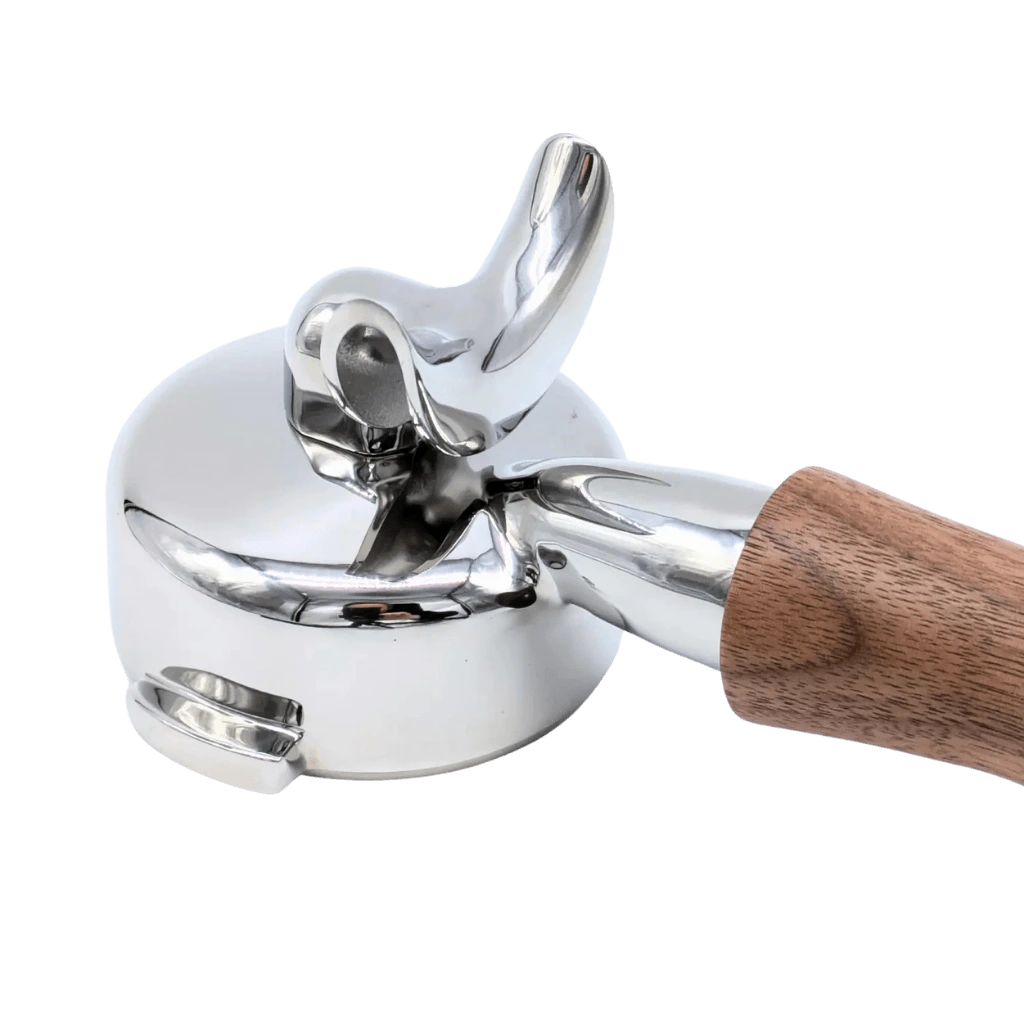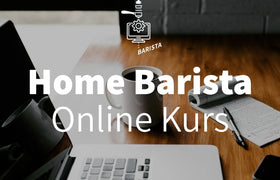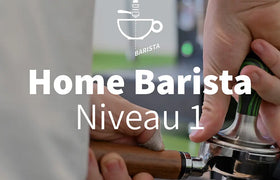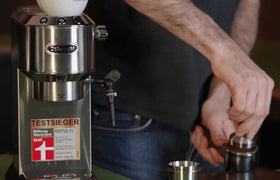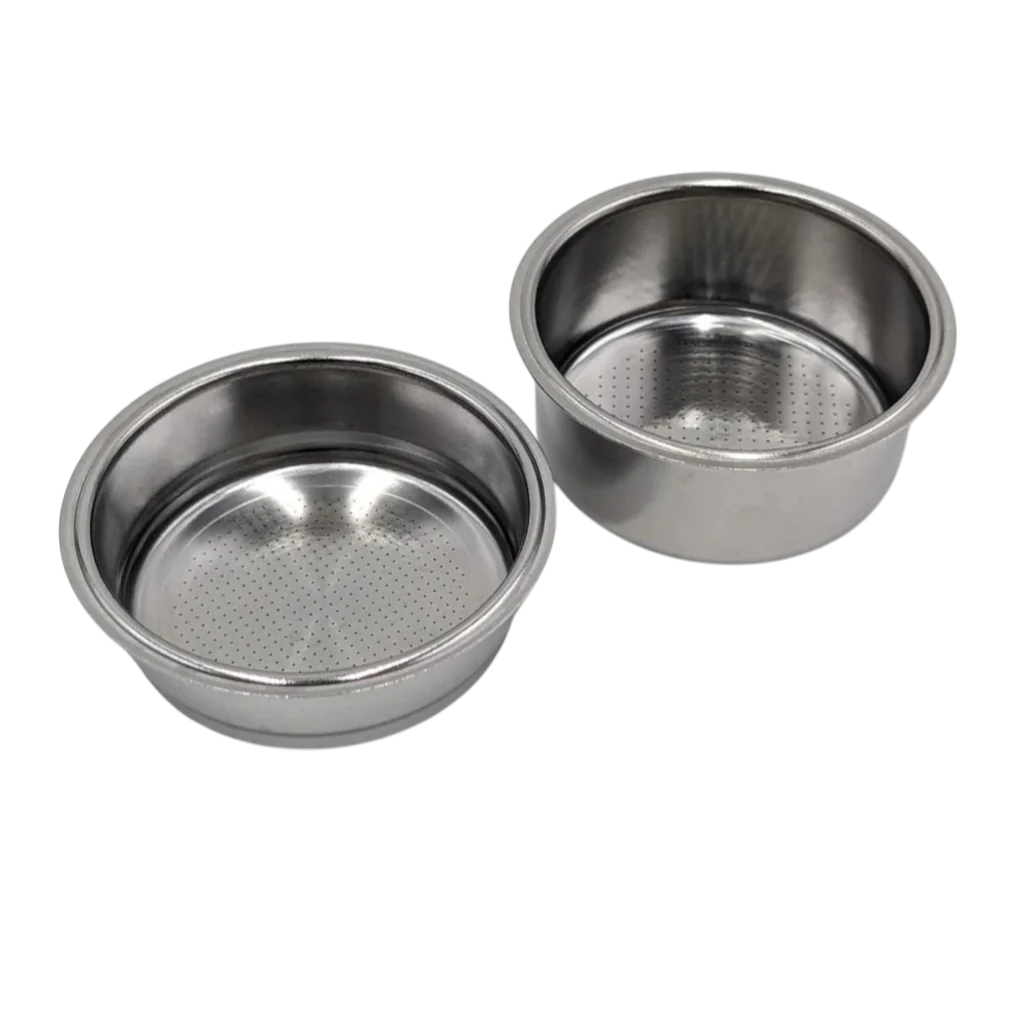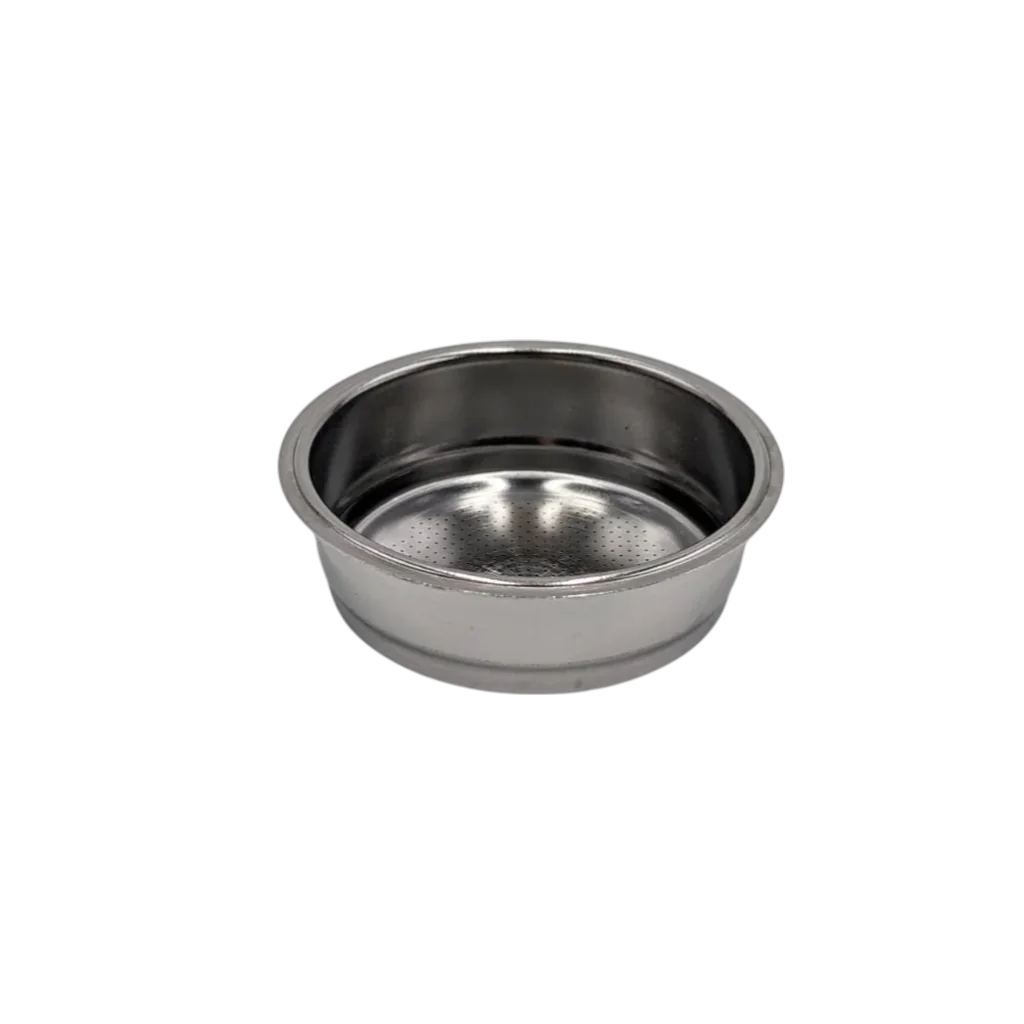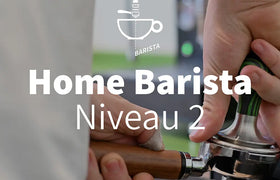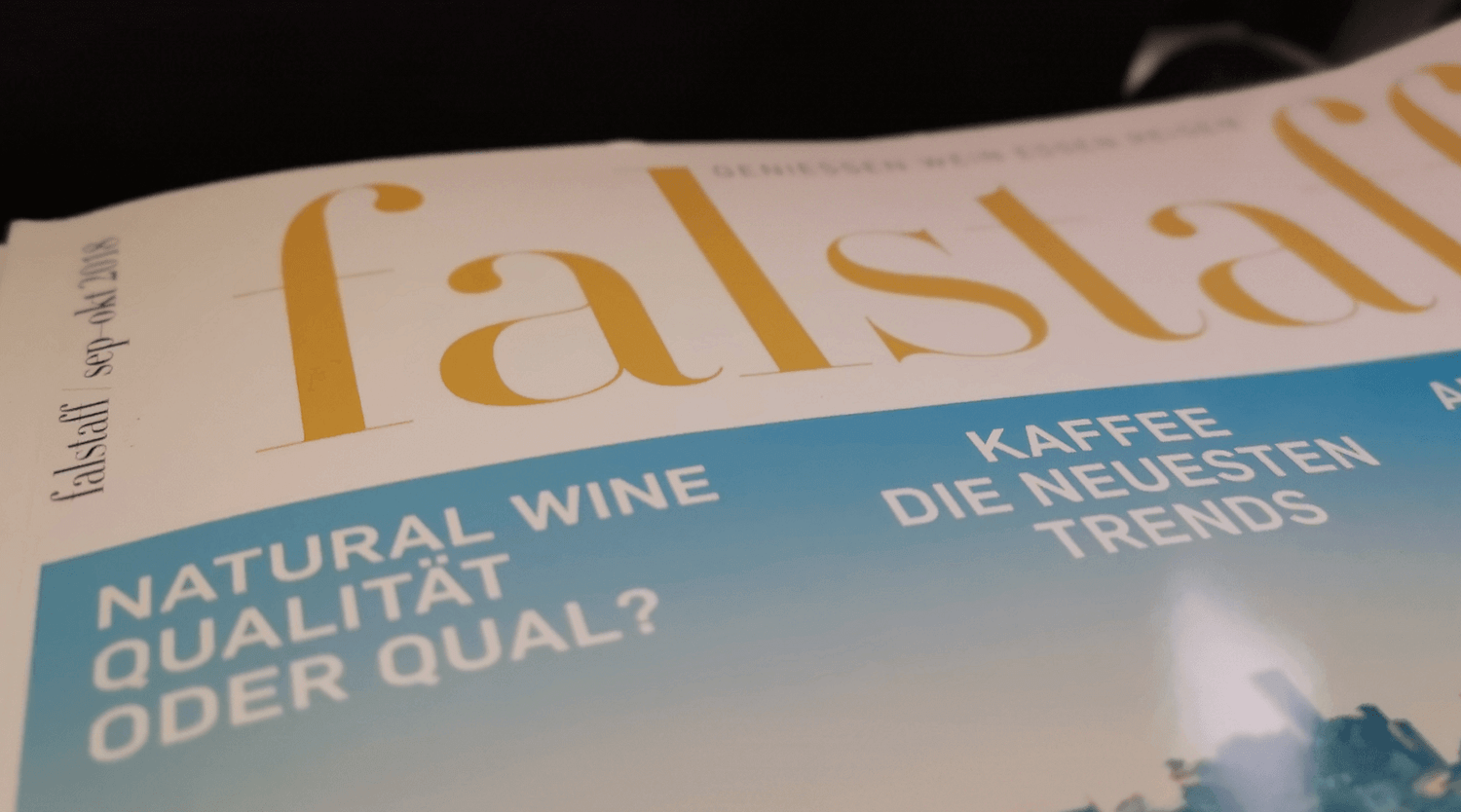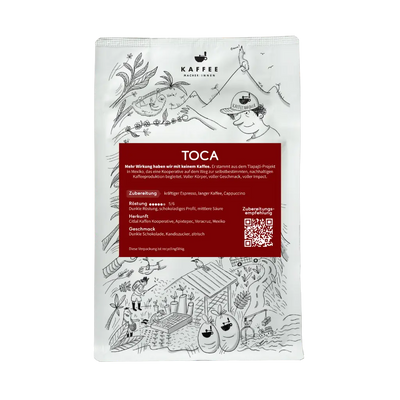Comparing wine and coffee is very general. However, if we focus on specific topics, we'll make progress. In this blog, we'll discuss two products that are always a topic of discussion: natural wine and specialty coffee . Can the two fields learn from each other?
Coffee and wine are cultural beverages that require explanation and contextualization. Specific expressions of both beverage categories require a little more effort to fully understand, such as specialty coffees and natural wines.
The September issue of the gourmet magazine Falstaff features a cover headline (see photo above): "Natural Wine – Quality or Pain?" Right next to it is another headline: "Coffee. The Latest Trends." Coffee and wine together on the cover of a glossy magazine. Either coffee has arrived where it belongs, or natural wine has managed to become socially acceptable. Or both.
What is specialty coffee?
According to the official SCA definition, these are coffees that are free of primary defects and score at least 80 points in the tasting. These points are determined by evaluating and quantifying the coffee's sensory attributes. We have expanded on this definition.
What is natural wine?
An answer that I like comes from Martin Helfer in an interview with vi-tis :
"I don't like using natural wine that much. Wine is a human-cultivated product. Grapes don't ferment and turn into wine on their own."
Martin Helfer in vi-tis, November 2018
Helfer prefers the term "natural wines produced with as little intervention as possible, meaning that the vineyards are cultivated biodynamically, and the wine is only accompanied in the cellar. (...) No "unnecessary" interventions during fermentation, no deacidification, no filtering or fining. No sulfur either."
It's clear: Natural (or unnatural) wines thrive on reduction to the essentials. They define themselves by exclusion criteria that are standard for "conventional wines."
Specialty coffee is less about exclusion and more about a flavor definition. The way the coffee is made has no influence on whether or not it qualifies as specialty coffee. On the one hand, the term is not protected, and on the other, there are no agronomic guidelines that would legitimize a certain practice as a specialty.
Specialty coffee = it's about tasteNatural wines = it's about the way they are made and the taste
Mature specialty coffee market and adolescent natural wine market?
Specialty coffee is a niche and must remain so, otherwise it would no longer be special. However, a niche can grow. These days, the colorful, trendy, and controversial contributions and concepts come from the specialty coffee world, while the larger coffee world looks to and copies what makes sense for itself. This avant-garde vs. mass market relationship is a normal course of events.
Nevertheless, representatives of the specialty coffee world have managed to make the product socially acceptable and mature with it. There's hardly anyone who hasn't heard of the "filter coffee trend" or tasted "single farm lots."
To put it somewhat pathetically: specialty coffee has become mainstream – but not everyone likes it, and that's OK.
Natural wine, on the other hand, carries with it this absurd conundrum: the production method is very old, yet the market is still very young. My grandparents made wine before a time when yeast was added to start the fermentation process. They actually made something like natural wines—they just didn't call them that.
Helfer is asked whether consumers know what natural wine is? – "More and more." However, there is no declaration requirement for wine, and consumers don't know what a conventional wine may contain and how much sulfur, since it only says sulfite." Helfer continues and explains:
"Hardly any winemaker says they produce natural wine. They simply produce wine according to their philosophy, always with the highest possible quality and what nature offers them, depending on the year." He goes on to say that it's currently a "hype," but one that will continue.
Martin Helfer, vi-tis, November 2018
So far, we've only seen natural wines sporadically in restaurants—where they're pursuing their own concept, or where they're a bit more daring. So far, I haven't seen natural wines in any ordinary pub. They're still too specialized for them. Maybe they don't need to be, and they're in the same situation as specialty coffee. A bit of niche sometimes helps to maintain appeal.
Is taste a question of age?
If we were to calculate the average age of our coffee-making course participants, we'd clearly arrive at a figure under 50. There may be a number of reasons for this, but let's stick with openness to new tastes.
Rethinking coffee and opening yourself up to new flavors takes some courage. You also have to allow yourself to be emotionally involved. For many, coffee is a five-minute meditation, a moment that belongs to you. You might not want someone telling you what coffee should or could taste like.
It's often no different with wine – "I don't like French people," I recently heard while eavesdropping in a restaurant. Rigid preconceptions, of course, don't help you discover wine in a new way. The audience for natural wine is likely also in the under-50 category.
Martin Helfer says: "If you've been drinking your Bordeaux for 30 years, your palate is conditioned to exactly that taste." Or, as a friend of mine puts it: You don't have to teach an old monkey how to peel a banana.
Mutual learning
Specialty coffee is no longer the newest thing, but it's a relatively new phenomenon that's developing rapidly. The Sturm & Drang phase is over, and it's becoming more mainstream. Sometimes I think natural wines are at a similar point. They still have to prove themselves; they need to be explained and compared.
However, natural wine has one crucial advantage, one we coffee lovers also hope for soon: access to top-class gastronomy. Chefs and sommeliers are helping to establish natural wine as advocates. When paired with food, wines—and food—sometimes take on a completely new quality. With espresso after a meal, however, fewer risks are often taken. You generally get what you expect, and that's a real shame. More on this in a future post.
A great concept that combines natural wines and specialty coffee is 169 West in Zurich: https://www.gaultmillau.ch/zuri-isst/169-west-pure-trinkfreude



